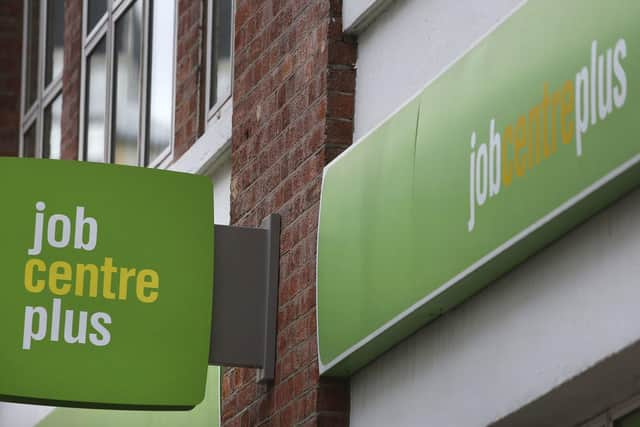Payrolled workers surge above pre-pandemic levels after record leap, says ONS
and live on Freeview channel 276
The Office for National Statistics (ONS) said the number of payrolled workers rose by 207,000 between August and September to a record 29.2 million.
This was 122,000 higher than levels seen before before the pandemic struck in February 2020.
Advertisement
Hide AdAdvertisement
Hide AdThe data also showed another record quarterly leap in job vacancies, up by 1.1 million between July and September.


Britain’s recovery in the jobs market saw the rate of unemployment fall further to 4.5% between June and August, the ONS added.
Darren Morgan, director of economic statistics at the ONS, said: “The jobs market has continued to recover from the effects of the coronavirus, with the number of employees on payroll in September now well exceeding pre-pandemic levels.
“Vacancies also reached a new one-month record in September, at nearly 1.2 million, with our latest estimates suggesting that all industries have at least as many jobs on offer now as before the onset of Covid-19.”
Advertisement
Hide AdAdvertisement
Hide AdChancellor Rishi Sunak said of the latest jobs figures: “As we move to the next stage of our support, it’s encouraging to see our Plan for Jobs working – the number of expected redundancies remained very low in September, there are more employees on payrolls than ever before and the unemployment rate has fallen for eight months in a row.
“We remain committed to helping people find great work, with an extra £500 million to support hundreds of thousands back into employment and help the lowest paid to progress in their careers.”
Dame DeAnne Julius, a founder member of the Bank of England’s Monetary Policy Committee, said the latest unemployment numbers showed there was a “hot demand for workers”.
But she said vacancies, which remained above a million for the second month running in September, pointed to “some structural changes in the labour market.”
Advertisement
Hide AdAdvertisement
Hide Ad“There’s clearly a reluctance there in the labour market on the supply side of people to come back to work fully,” she told BBC Radio 4’s Today programme, adding that many people were “sitting on the fence” about returning to their pre-pandemic careers.
Asked whether the growth in average weekly earnings pointed to a higher-wage economy of the kind Prime Minister Boris Johnson has hailed, the economist said: “The evidence is still out on that one.”
Comment Guidelines
National World encourages reader discussion on our stories. User feedback, insights and back-and-forth exchanges add a rich layer of context to reporting. Please review our Community Guidelines before commenting.